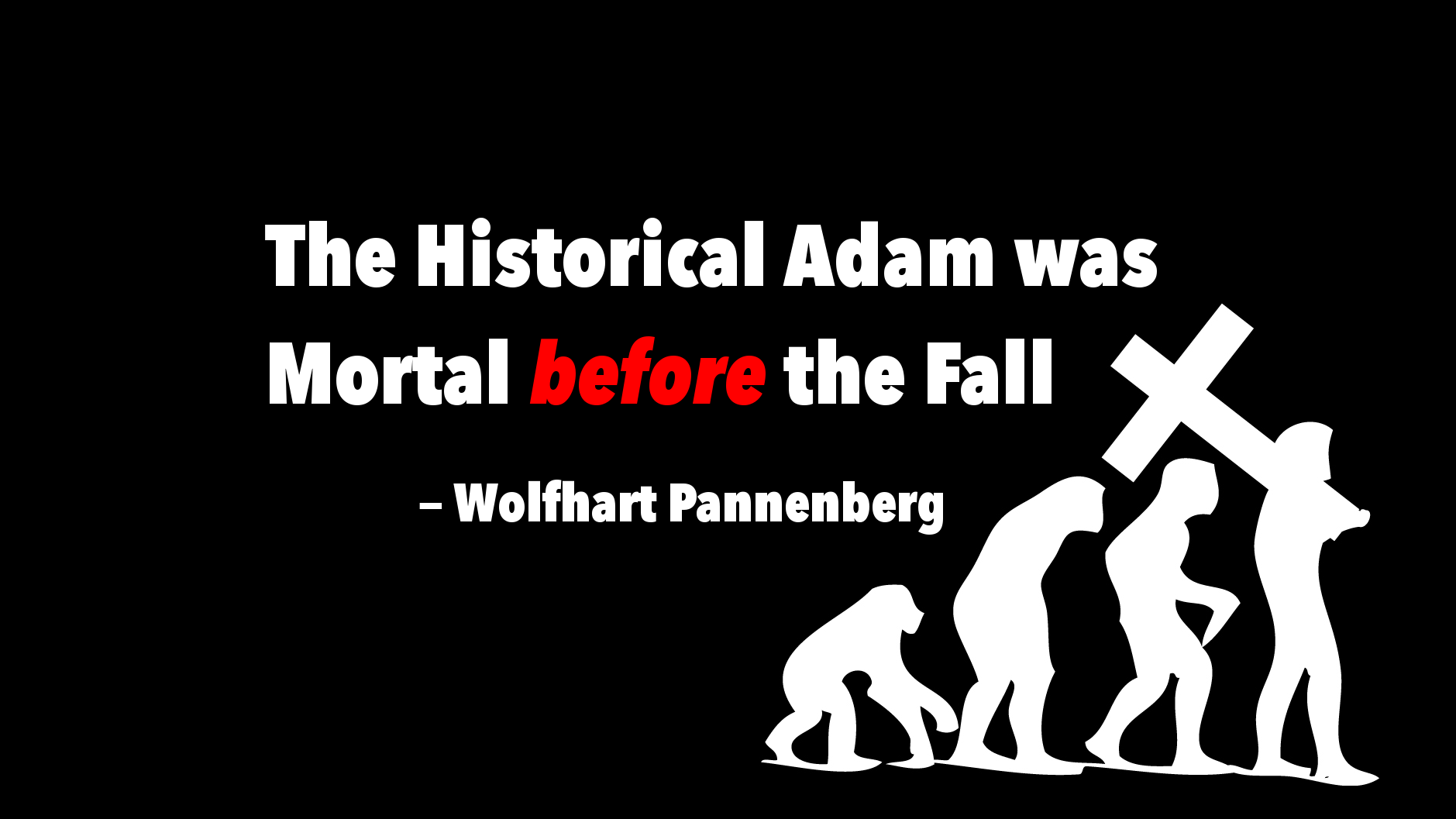Was the Historical Adam ever immortal? Wolfhart Pannenberg says that if we look closely at the biblical text, then we will discover that the answer is no! Pannenberg believes that the Fall caused a shortening of human life, but this does not mean that humanity was ever immortal before the Fall, as described in the second Genesis Creation story. Pannenberg says the idea that Adam and Eve were immortal before the Fall originated late in extra-biblical literature, specifically in the Wisdom of Solomon and Book of Enoch, and covertly crept into the common evangelical interpretation of the Historical Adam. If we build our Christian anthropology upon the biblical texts, then we will have to abandon the belief that Adam and Eve were immortal human beings that lost their immortality after the Fall.
Pannenberg's conclusion that the Historical Adam was mortal before the Fall, helps us better understand how evolutionary sciences fits with biblical revelation, and allows us to understand how God created humanity, and also affirm that humanity evolved from higher primates. Also, Pannenberg helps us understand how there was death before the Fall, and helps us understand how the Genesis Creation stories relate to Human Evolution in our understanding of hominization.
Here's a key quotation from Wolfhart Pannenberg's Systematic Theology Vol. 2 where he explains humanity's first estate:
There is no real biblical basis for the emphasis of the older Protestant dogmatics on a paradisaic perfection and integrity of human life before the fall in consequence of Adam's original righteousness. The shortening of human life in consequence of the first transgression (Gen 3:16-19) indeed presupposed a prior state in which this judgment did not apply, but this did not have to include either perfect knowledge and holiness or immortality before the fall. The fruits of the tree of life (Gen 2:9) were not forbidden to Adam and Eve, but they do not seem to have discovered these fruits before they became sinners (Gen 3:22).
The Wisdom of Solomon might say that God created us for immortality and closely relate this fact to the divine likeness (Gen 2:23), but the second creation story does not allow us to conclude that our first parents possessed immortality, only that they were destined to attain it in the future. Even the threat of death as a result of eating the forbidden fruit does not necessarily imply that our first parents would have been immortal if they had not transgressed. The threat is not to the effect that they become mortal but that they die on the day of transgression, i.e., that they are punished with an early death.
Only in Israel's postexilic wisdom and apocalyptic texts do we find the view that Adam possessed immortality before the fall. Thus 1 Enoch 69:11 says that humans were originally created no different from angels and that death would not have touched them had they not sinned. According to Wisdom 1:13, God did not create death. [1]
Sources:
- Header Image Background: By latvian - evolution, CC BY 2.0, Link
- Pannenberg, Wolfhart. “Systematic Theology (Volume 2).” Systematic Theology (Volume 2), translated by Geoffrey W. Bromiley, Wm. B. Eerdmans Publishing Co., 2001, pp. 212-3. [Line breaks added for readability]




Leave a comment